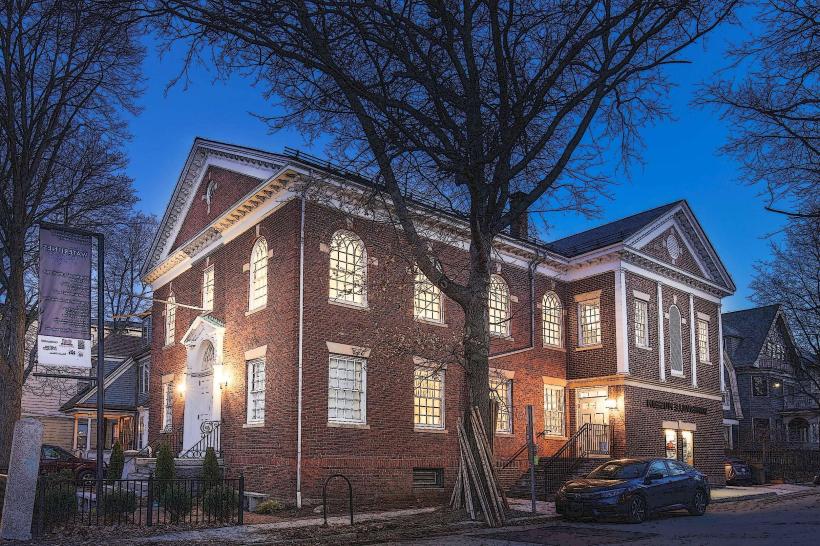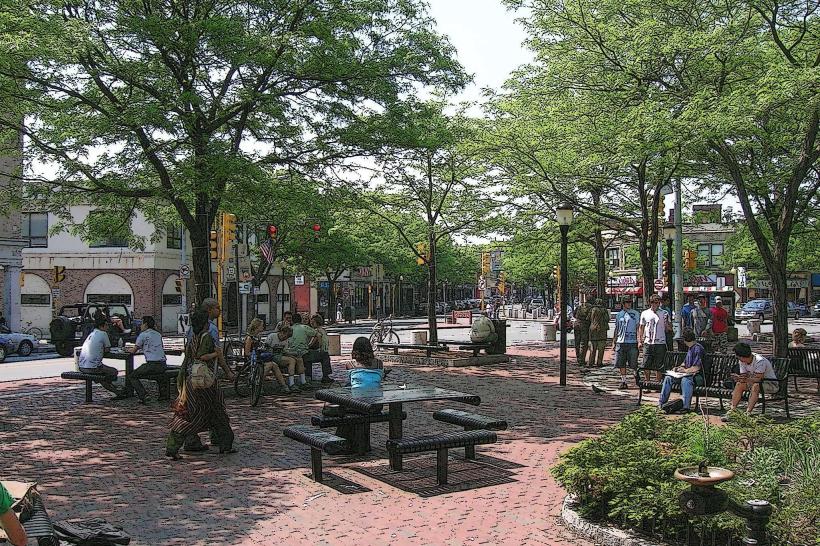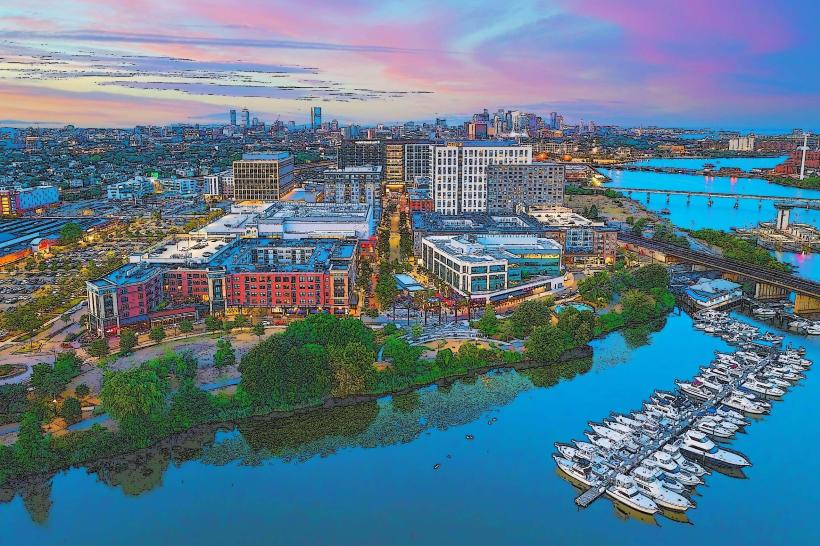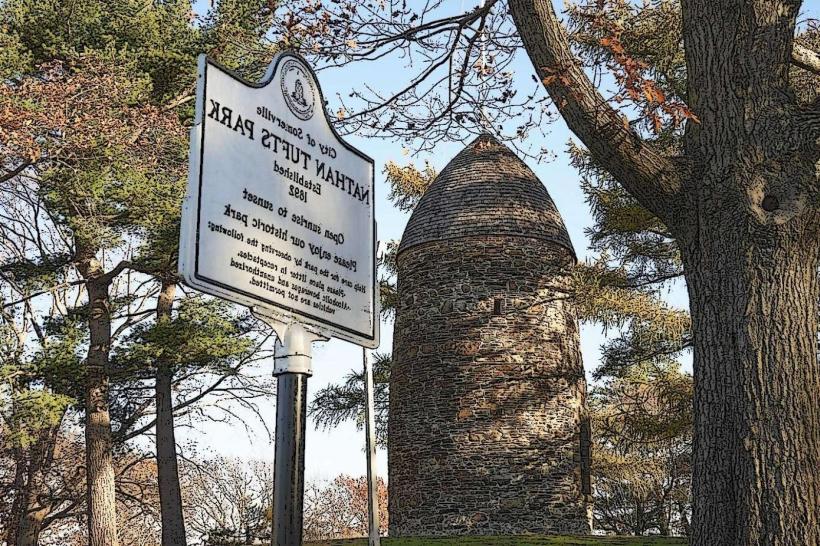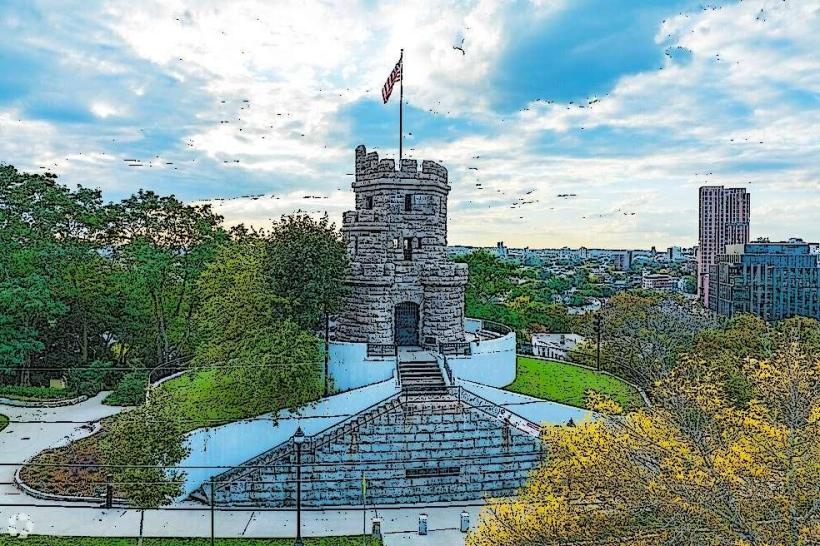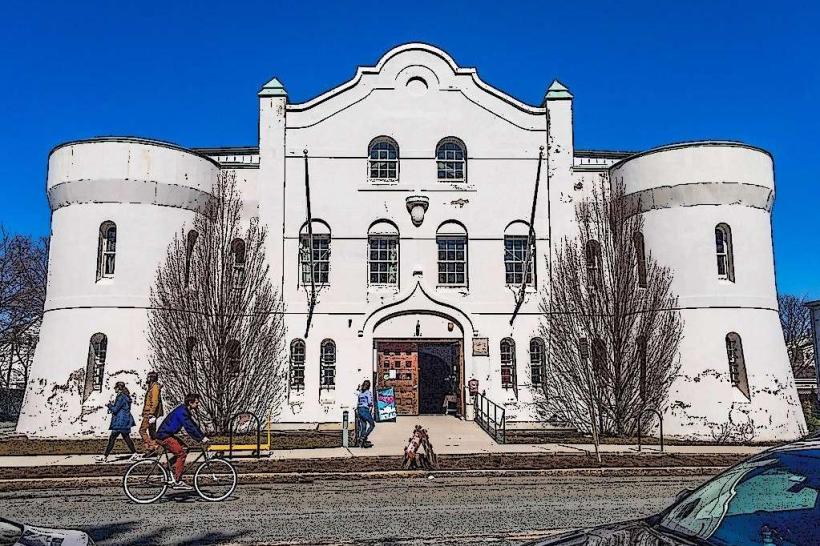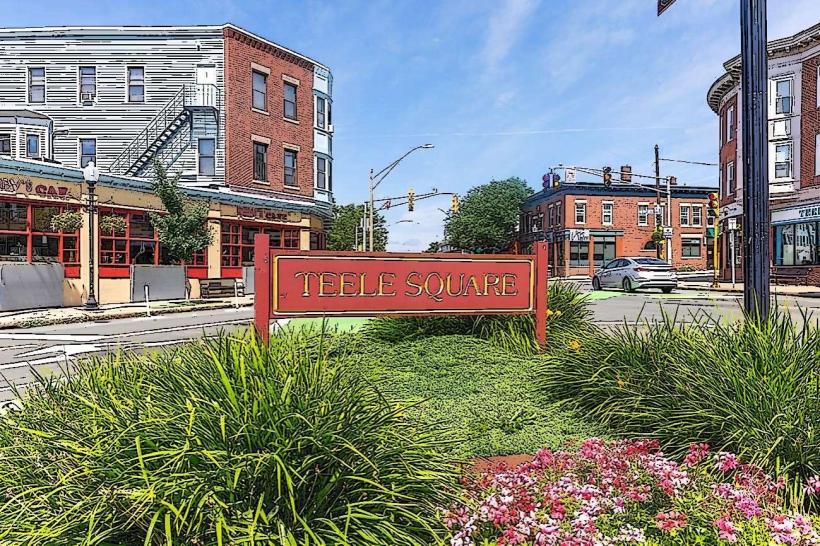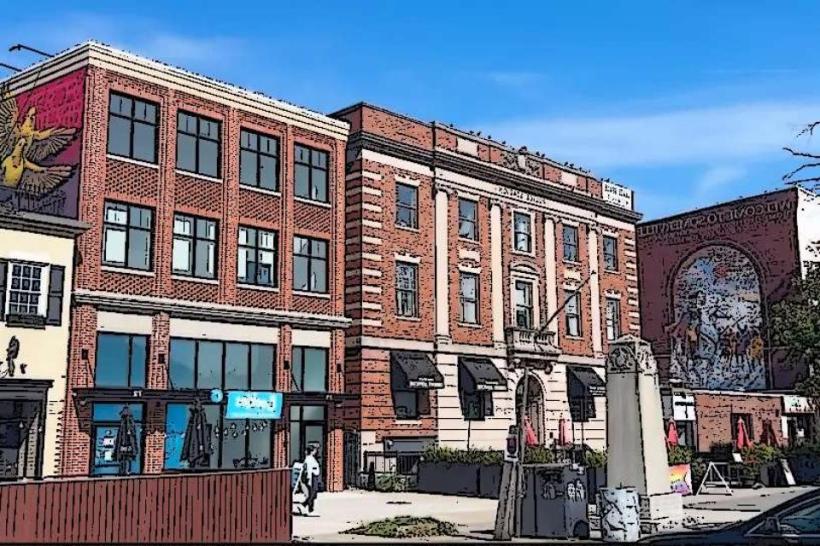Information
Landmark: Winter HillCity: Somerville
Country: USA Massachusetts
Continent: North America
Winter Hill, Somerville, USA Massachusetts, North America
Stonewall Jackson’s Headquarters Museum is located in Fredericksburg, Virginia. It is a historic house that served as a temporary command post for Confederate General Thomas J. "Stonewall" Jackson during the American Civil War.
Visual Characteristics
The structure is a two-story brick house with a hipped roof. The exterior walls are constructed of red brick. It features white-painted wooden trim around the windows and doors. A small, white-painted wooden porch extends across the front facade.
Location & Access Logistics
The museum is situated at 1201 Caroline Street in Fredericksburg, Virginia. It is approximately 0.5km south of the central downtown area. On-street parking is available on Caroline Street and adjacent side streets, subject to availability. Public transport options include the Fredericksburg Regional Transit bus system; Route 2 stops within 0.2km of the location.
Historical & Ecological Origin
The house was constructed in 1840 by local builder John F. Horner. It was originally a private residence. During December 1862, General Jackson occupied the house as his headquarters during the Battle of Fredericksburg. The building is an example of mid-19th-century vernacular architecture.
Key Highlights & Activities
Visitors can tour the rooms as they were furnished during Jackson's occupation. Exhibits detail Jackson's military career and his role in the Fredericksburg campaign. Interpretive signage provides historical context. Photography inside the museum is restricted.
Infrastructure & Amenities
Restrooms are available on-site. Limited shade is provided by mature trees on the property. Cell phone signal (4G/5G) is generally available in the area. No food vendors are located directly at the museum; dining options are available in the nearby downtown district.
Best Time to Visit
The museum is open daily from 10:00 AM to 4:00 PM, with the last entry at 3:30 PM. Weekday mornings typically have lower visitor numbers. The best time of year for comfortable outdoor exploration of the surrounding area is spring (April-May) or fall (September-October).
Facts & Legends
A specific artifact on display is General Jackson's personal field desk, which he used for correspondence and planning. Local accounts suggest that the house was chosen for its strategic position overlooking the Rappahannock River, though it was not heavily fortified.
Nearby Landmarks
- Fredericksburg and Spotsylvania National Military Park Visitor Center (1.5km Southwest)
- Mary Washington House (0.8km Northwest)
- Fredericksburg Battlefield (2.0km South)
- Historic Downtown Fredericksburg (0.5km North)
- Kenmore Plantation and Gardens (1.2km Northwest)

